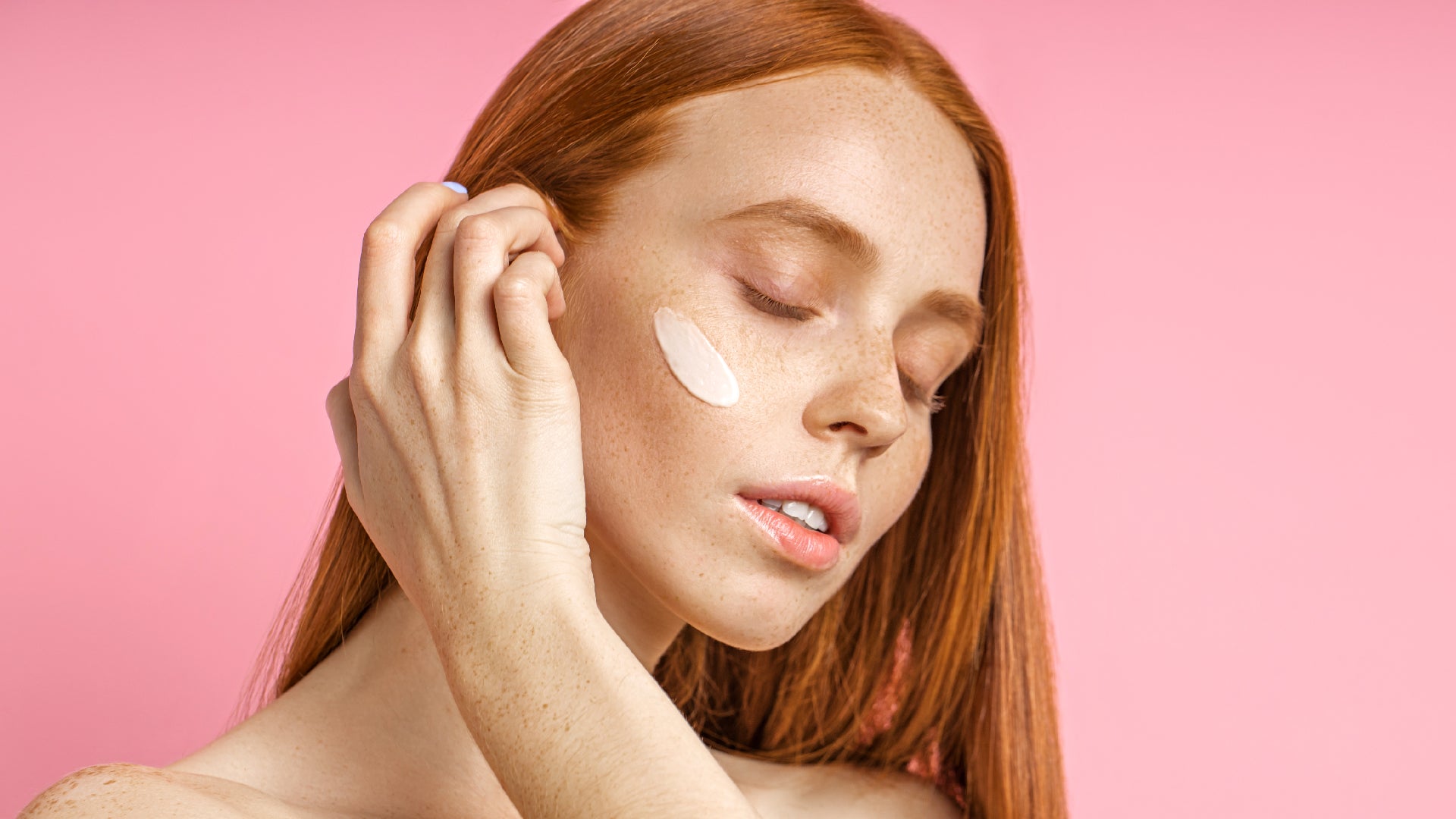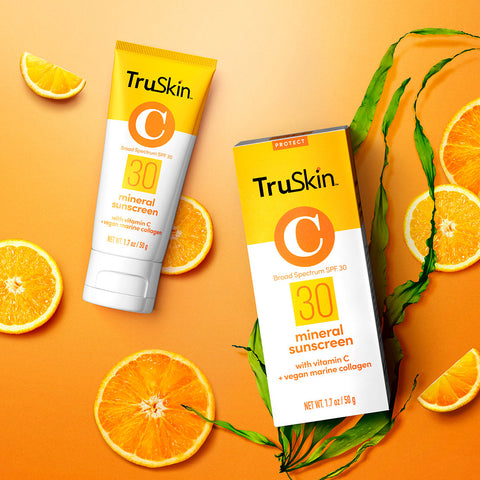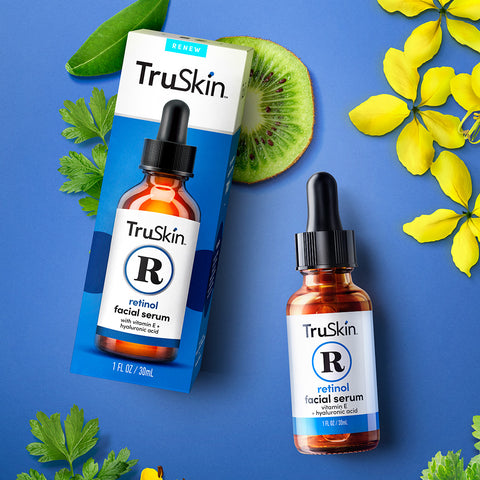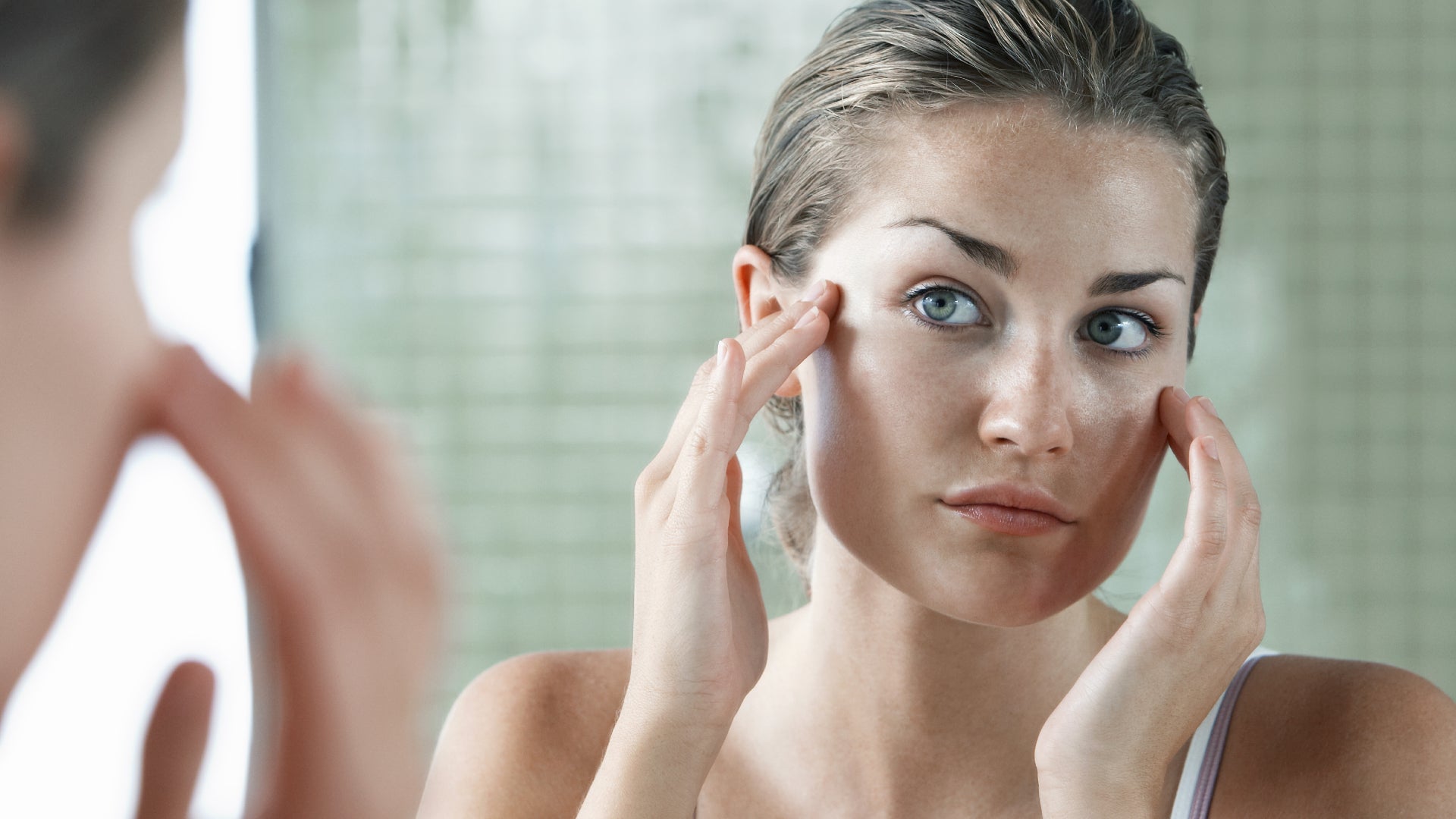
The Truth About Collagen
Collagen is one of, if not the most important building blocks of your skin. But what’s the deal with collagen loss and can skincare really help put back what’s gone? Here’s everything we know…
If you’re here, you’re probably semi-interested in your skin and how it works. And if that’s the case you’ll know a little bit about collagen and the role it plays in the overall health of your skin. Hint: it’s a LOT.
But how much do you really know about collagen? Like, what happens as you age? And what collagen in skincare truthfully means?
Interested to up your collagen knowledge (ooh, try saying that three times in a row after a few pinots!)? Then read on for the full intel…
What Is Collagen?
Collagen is the most abundant protein in the whole of your body and it’s made up of a combination of amino acids. While there are many different types of collagen, there are only four main variants, and of these, just one (type I) accounts for a whopping 90 percent of your body’s collagen levels.
Collagen is found in the body’s connective tissues and it has a kind of dense, fiber-like structure which acts like ‘glue’ to make these tissues strong, supple and resilient. You’ll find collagen in your bones, muscles, teeth and blood, but it’s most prevalent in your skin where it’s produced just beneath the surface in the dermis.
How Does Aging Affect Collagen?
When you’re young, your skin is awash with lots of delicious collagen which keeps it soft, strong, plump and wrinkle-free. However, once you hit your 20s, you start to produce around 1-1.5 percent less collagen every year. This is what’s known as intrinsic aging and it’s what causes the inevitable thinning and weakening of your skin you literally have no control over.
Of course, there are plenty of other factors at play here, too. Your lifestyle, your diet, how much sleep you get and your levels of stress all work to deplete collagen in your skin. Then, there’s the environmental stuff like pollution and UV damage that cause collagen-damaging free radicals. All this you can control and it’s what’s known in the biz as extrinsic aging.
So, Can You Slow Down The Rate At Which Your Skin Loses Collagen?
Yes and no. Intrinsic aging is a done deal and unless you’ve invented some kind of Back To The Future style DeLorean, you can’t alter time. But you can control all the other factors. The sun is the biggest player and responsible for around 80 percent of extrinsic aging, so you must protect your skin from UV damage every day by applying an antioxidant like Vitamin C Facial Serum followed by sunscreen with broad-spectrum coverage.
Getting a great night’s sleep, not smoking and reducing emotional stress are also super important. And so is your diet. Sugar and refined carbs can really screw up collagen synthesis so try to avoid these. Instead, up your intake of antioxidant-rich fruit and veggies and ensure you get plenty of protein as this helps your body produce more quality collagen in order to maintain firmer, younger-looking skin.
Meat, poultry, seafood, dairy, beans and tofu are real BFFs for quality collagen production.
What’s The Deal With Collagen In Skincare?
Experts are divided as to whether applying skincare containing collagen really works. The issue is that collagen is a large, very complex molecule making it pretty hard to penetrate the skin when applied topically. Hydrolyzed collagen (which is collagen that’s been broken down into peptides) may absorb more easily, but the jury’s still out.
If you're not convinced, stick with skincare ingredients that work to increase your own rate of collagen production, rather than to apply topical, synthetic collagen. Ingredients like retinol, MSM and vitamin C have all been studied and proven to stimulate your skin’s natural collagen production and inhibit its breakdown. Retinol, in particular, has been used for decades and has an awesome track record when it comes to upping your collagen levels.
Try Retinol Facial Serum or Vitamin C Super Serum +. And of course, don’t forget that super important sun protection to reduce the formation of free radicals in your skin and consequently decrease your risk of collagen damage.
Finally, What About Collagen Drinks & Supplements?
There's not a huge amount of evidence to support whether collagen shots or supplements can realistically make your lines and wrinkles disappear. Some research papers point to them having definite potential, but other experts believe that by the time the collagen has been ingested, digested and made its way into your bloodstream its potency and quantity could be somewhat lacking.
Again, hydrolyzed collagen supplements seem to have potential as studies show these to be more easily absorbed by your body.
Our advice for maintaining quality collagen for as long as you possibly can? Go for a healthy diet, use daily sun protection and apply antioxidants and retinol on the reg.
More About This Article
Georgia Gould
Georgia is an award-winning beauty writer who has been in the business for over 20 years. British-born, she began her career as a magazine beauty editor in London before moving to San Francisco, CA in 2012 where she now continues her love as a freelance writer and editor. As well as her editorial work, Georgia has created content for many high-profile beauty brands, including Clarins, L’Oréal, Procter & Gamble, Simple and TRESemmé. Her passions include retinol (obviously), golfing, skiing and walking her beloved Schnauzer, Dave.
You May Also Like
View More-
Not a fan of those vertical lines that extend from your nose down to the sides of your mouth? Then read on for five ways to help minimize their appearance.
Smile lines might sound rather lovely and, in all honesty, most of us have some kind of fold – however tiny or etched in – down the sides of our mouth. Do us a favor and dig out a picture of yourself smiling or laughing 20 or so years ago. Chances are, even then, they were apparent. But the thing is, smile lines, aka laughter lines, marionette lines or nasolabial folds come and go with your facial expression when you’re young and your skin is full of delicious collagen. Not so much as time ticks on. In fact, smile lines get progressively deeper as you age, often to the point where they’re always visible around the lips, even when you’re not smiling.
Many people can totally live with their smile lines. Some of you may even find that they’re an essential part of who you are. And we love that. However, that’s not the case for everyone. Smile lines, like crow’s feet and elevens (frown lines) can be a pesky annoyance for many of us. Sounds familiar? Then keep scrolling for some simple skincare tricks and lifestyle habits for helping to reduce the appearance of your smile lines. Just one thing, though. Don’t stop actually smiling in a bid to soften those lines. That’s just miserable.
Prioritize Regular Exfoliation
Exfoliation is one of the simplest ways to stimulate cellular turnover, remove dead skin cells and help improve the appearance of wrinkles by refining the tone and texture of your skin. Of course, in-office treatments like microdermabrasion offer the deepest type of exfoliation so they're always an option, but if you prefer to deal with your skin at home, our 6% AHA, BHA + PHA Liquid Exfoliant is a fabulous choice.
A leave-on liquid that’s best applied to freshly cleansed skin (but before serum), this lightweight treatment contains a super smart blend of exfoliating ingredients to do all the hard work without any kind of scrubbing action. The main ingredients in question are glycolic acid, salicylic acid and gluconolactone which are different types of exfoliating acids. Together, they work like clockwork to encourage collagen production, hydrate the skin and say a big, fat ‘ciao’ to dead skin cells.
It’s gentle enough to use daily but we always recommend starting slowly, then building up to frequent use as your skin acclimates.
Build Collagen With Retinol Or Bakuchiol
Collagen is extremely important for the health of your skin, giving it structure, support, strength and volume. You’re born with tons of fabulous collagen in your skin which is why baby’s skin is so soft and plump. However, as you age, your production of collagen gets slower and thus your levels get lower, making your skin become drier, thinner and less elastic. This happens from around your mid-to-late 20s onwards. Yes, that early!
Sadly, you can’t stop this inevitable natural aging process, but there are many ways to help keep your collagen from disappearing quicker than nature intended.
Two of the most important topical ingredients for collagen are retinol, or nature’s gentler alternative to retinol, bakuchiol. Both of these work at a cellular level to kickstart collagen and encourage a more efficient barrier function to help keep your skin hydrated and healthy. Our Retinol Facial Serum is an incredible nightly treatment for improving smile (and indeed all!) lines, or try our fabulous Longevity Regimen Bundle if retinol’s not your thing.
Stimulate Blood Flow With A Facial Workout
Daily massage around your mouth can be a super effective way to work out the muscles and help improve the skin’s texture in this area. Of course, it won’t miraculously make your smile lines disappear but if you practice it regularly you should see an improvement over time.
Here are three great exercises to try:
1. Create a fist with both hands and place them at the corners of your mouth. Apply gentle pressure, then smooth your fists up the cheekbones to your temples. Repeat 10 times.
2. Part your lips slightly and use the pads of your fingers to pull the corners of your mouth back towards your face while keeping your lips parallel. Hold for 10 seconds and repeat 10 times.
3. Hook the corners of your mouth with your index fingers and pull your fingers apart about a quarter of inch while tightening the corners of your mouth towards each other. Hold the resistance for 10 seconds and repeat 10 times.
Shield Your Skin From Sun Damage
If want to choose just one wrinkle-reducing trick for preserving your collagen and therefore improving wrinkles, lines, folds and creases on your skin, sun protection is unquestionably it. Granted, it won’t get rid of anything that’s already formed, but it will prevent further issues from rearing their heads and will help stop your smile lines from getting any worse.
We understand that applying sunscreen every morning can be a real pain in the butt, which is why we formulated our SPF 30 Mineral Sunscreen with Vitamin C to be a real joy to use. It’s non-sticky, totally lightweight, blends into your skin like a dream and doesn’t leave any annoying white marks. What’s more, it contains a cheeky boost of vitamin C to further protect your skin and add a little extra glow factor. Seems rude not to, right?
Practice Good Lifestyle Habits
Finally, the classic, skin-loving lifestyle habits must never be forgotten about if you want to hold on to young-looking skin for as long as possible. We’re talking, of course, about getting plenty of regular, quality sleep; staying hydrated with lots of sugar-free, caffeine-free drinks and water-rich foods (watermelon, anyone?); drinking booze in moderation; eating a fruit and veggie-forward diet; getting your fill of omega-3s and trying to keep your stress levels to a minimum.
Surely that’s not too much to ask, is it?
Anti-Aging5 Ways To Deal With Smile Lines At Home
read more -
Retinol is great. Irritation, redness and dry skin from misuse of this potent ingredient? Not so great.
If you’re interested in skincare, we imagine you’ll have read about retinol many times before. But reading about it and using it to great effect are two very different stories.
You see, retinol is not to be underestimated. Its potency, for which it is adored and revered by dermatologists and beauty experts all over the world, is both its superpower… and its downfall. And if you’re yet to try it, that’s probably the reason you’re so nervous. Yes, you’d love a piece of all that skin-replenishing goodness. However, the potential for irritation far outweighs its potential benefits.
Well, we think that’s a real shame. Because for all its strength, retinol really can be tolerated by almost all skin types and is a powerful weapon against the visible signs of aging and acne breakouts.
But only if you use it wisely, of course.
So, if you’re thinking of taking the plunge with retinol, but need a little reassurance and a few pointers to help you along the way, read on for the most important tips for first-timers…
1. Start Off With A Gentle Formulation
Retinol is part of the retinoid family which also includes other topical vitamin A derivatives such as tretinoin, Retin-A and other retinyl esters. Certain retinoids are only available by prescription and are extremely potent (hence the prescription!), but retinol itself is much weaker and readily available in low-percentage, OTC skincare formulations.
This is good news for first-timers because slightly weaker ingredients at lower percentages are going to be much kinder to your skin. If you’re still nervous, however, try bakuchiol instead of retinol. This wonder-ingredient is nature’s gentle alternative to retinol, offering very similar benefits with much fewer side-effects – if any. So, if you want to start off with the gentlest option possible, we recommend going for bakuchiol over retinol, hands down. And we have a whole range to try, right here.
2. Patch Test First
Patch testing any new product that contains active ingredients is important, but with retinol it’s absolutely crucial.
To do this, simply apply a small amount to a discreet area of your skin – behind the ear, at the back of your neck or on your inner arm – then wait 24-48 hours for signs of sensitivity. A little redness or tingling is fine, but anything that feels uncomfortable or looks super red and angry is a tell-tale sign that this particular retinol product is not for you. It doesn’t mean all retinol is off the table, but you might want to try something more suitable for sensitive skin. One word: bakuchiol!
3. Introduce Retinol Slowly Into Your Routine
If you start using retinol every day from the off you could live to regret it. So, after you’ve patch tested and been given the green light by non-irritated skin, start using your retinol product slowly at first.
Begin your retinol routine just once or twice a week to see how your skin reacts. Do this for a week or so then, if all is well, you can gradually build up to every day. And if things start to get too much? No problem, just reduce your usage back down again. It’s very easy to find your sweet spot if you just listen to your skin.
4. Always Apply Retinol To Dry Skin
Applying serums and moisturizers to damp skin can be a great way to seal in extra moisture. However, damp skin is also thought to absorb products quicker and deeper which is great… until your skin freaks out.
To avoid any risk of irritation, allow your skin to dry fully before applying your retinol product.
5. Alternate Retinol With Other Active Ingredients
Retinol plays well with calming, hydrating and soothing ingredients like hyaluronic acid, aloe, green tea and vitamin E which is why you’ll find all of those beauties in our awesome Retinol Facial Serum. But it’s not friends with everything so be extra careful with active ingredients in the rest of your skincare routine.
Instead of piling on potent formulations all at once, we recommend alternating them. Try your retinol serum one night, for example, and then an exfoliating lotion like AHA, BHA + PHA Liquid Exfoliant or your favorite vitamin C serum the next. By doing this, you’ll limit irritation but still reap all of the goodness of some of the most effective skincare ingredients out there.
6. Don’t Forget To Moisturize
The thing most people hate about retinol? Dry, peeling skin. But this all part of the beauty of retinol doing its job, purging your skin while improving cellular turnover and encouraging all those dulling dead skin cells to beat it so you're left with a fresher, healthier-looking complexion.
This purging process usually only lasts around two to four weeks, but it’s no time to stop moisturizing or any other such nonsense. In fact, moisturizer is going to be your BFF right now so ensure you apply it morning and night after your facial serum. We also recommend going super gentle with your cleansing routine to strengthen your skin’s barrier function and help avoid further moisture loss. Try our Soothing Cleansing Milk which is a real winner for dry or sensitive skin.
And if you still find certain parts of your face are becoming drier and more flaky than others? Avoid applying retinol to these areas for a bit. Or only apply it once a week. Again, it’s all about listening to your skin and understanding what it does and doesn’t like.
7. Use SPF Every Morning
Although retinol doesn’t cause your skin to burn it does break down and become less effective when it’s exposed to sunlight. This is why it’s best used at night.
However, you STILL need to apply sunscreen every morning because all those fresh new skin cells require looking after. And subjecting them to hours of damaging UV radiation is not the way to go about that.
Apply Vitamin C Facial Serum in the morning for extra antioxidant safe-guarding, followed by SPF 30 Mineral Sunscreen with Vitamin C. We call this the ultimate sun protective power couple.
8. Finally, Don’t Give Up
One of the most important things to remember is that retinol takes time to work, so don’t expect to see results overnight. Most OTC retinol formulations require at least three, preferably six months for the true benefits to come to light.
Be patient and you’ll be rewarded in the end.
RetinolWhat You Should Know Before Using Retinol For The First Time
read more -
Retinol is arguably one of the most lauded skincare ingredients out there. We don’t dispute that. But if you don’t get on with retinol, what are the alternatives? Read on for eight other skincare greats that can be just as effective for aging skin.
Retinol? We approve. In fact we have a whole bunch of skincare formulations, including an awesome serum and moisturizer, based around this skincare powerhouse. However, while its benefits to your skin are undeniable, it’s not the only ingredient that helps aging skin. Sure, it’s been proven time and again to nudge collagen synthesis and encourage faster cellular turnover. And yes, this simultaneously works to improve the visible appearance of pimples, dark spots, fine lines and wrinkles. But retinol is not without its faults. Ask anyone with sensitive skin and they will attest to its sometimes irritating, redness-inducing qualities.
The good news is that when retinol isn’t playing ball, there are tons of other incredible ingredients that can help deal with your skin woes just as well. Some might even be a more effective option for you – depending on your skin goals, of course. So let’s check them out, shall we?
1. Bakuchiol
New (ish) to the skincare game, but already giving retinol run for its money, bakuchiol is your guy if you’re looking to replicate the effects of retinol, but are so not in the market for dryness, redness, peeling or irritation.
Bakuchiol (pronounced bah-koo-chee-awl) is nature’s best alternative to retinol. Extracted from the seeds and leaves of the babchi plant, it’s been used for centuries in Chinese and Ayurvedic medicine and, if recent clinical studies are anything to go by, it’s shown real promise for dramatically improving the surface of the skin. How does it do this? By stimulating collagen synthesis and accelerating cellular turnover at a deep, below-the-surface level. And if this sounds familiar, that’s because this is exactly what retinol does. The difference is that bakuchiol is more gentle on the skin so has way fewer side effects. If any at all.
We’re big fans of bakuchiol (if you couldn’t tell!) and based an entire range of healthy aging formulations on this awesome ingredient. Try the lot with our Longevity Regimen Bundle which includes Renewing Moisturizing Cream, Depuffing Eye Cream and Rejuvenating Serum to tackle the signs of aging from all angles.
2. Ceramides
We know you’ve heard of ceramides, but do you know what they actually are? Well, ceramides are important lipids found naturally in your skin’s structure where they play a major role in the efficiency of your barrier function, binding your cells together while helping your skin to maintain strength, stability and protection from the outside world.
Unfortunately, skin loses ceramides as it ages and this compromises your barrier function, resulting in anything from the odd bit of dryness through to rough texture and some serious premature aging. Not cool.
Topical ceramides, however, can be a great addition to your skincare routine, boosting moisture, strengthening your BFF (barrier function friend, that is!) and, in turn, helping to fight back against wrinkles and sagging skin. Try our fabulous Firming Collagen Day Lotion and Smoothing Collagen Serum dynamic duo to get your fill.
3. Glycolic Acid
As a fully paid up member of the AHA (alpha hydroxy acid) club, glycolic acid is a chemical exfoliant that helps accelerate cell turnover by breaking the bonds between dead skin cells and encouraging them to split. Retinol does the same, albeit it in a very different way.
Full disclosure, glycolic acid’s potency is on a par with retinol so it does have a tendency to overpower certain sensitive skin types. But as long as you use it carefully, introducing it slowly and not overdoing it, it can be a great way to brighten and smooth the skin while helping to fade dark spots.
Glycolic acid is also a smart choice if you’re looking to reduce acne breakouts. (Ha, no thanks we’ll keep them as they are, thanks – said nobody, ever!). It works by helping to keep your pores clean and free of dead skin cells, which makes them appear tighter and stops them from becoming blocked and inflamed. Want in on some of that? Then treat your skin with 6% AHA, BHA + PHA Liquid Exfoliant two or three times a week. You won’t regret it.
4. Hyaluronic Acid
Without a decent amount of hydration, skin is nothing. Moisture helps keep your skin plump, soft, smooth and youthful-looking, reducing the appearance of redness, fine lines and wrinkles while smoothing rough texture and firming sagging skin. It figures, therefore, that if you don’t keep your well hydrated it will age up in no time. And no amount of retinol will be able to stop it!
Enter hyaluronic acid (HA) to the skincare scene. A master of hydration, HA can hold up to 1,000 times its weight in water, drawing moisture to the surface of your skin when applied topically. It’s also very well tolerated by all skin types (your skin naturally contains HA so, of course it loves it!).
Granted, hyaluronic acid doesn’t have the ability to boost skin turnover, but don’t hold that against it because it does have antioxidant powers to protect your skin against environmental free radicals and safeguard your all-important collagen and elastin supplies. We’ll take that. Try our Hyaluronic Acid Facial Serum and see for yourself what a fantastic ingredient it really is.
5. MSM
Otherwise known as methylsulfonylmethane, MSM is a naturally-occurring form of sulfur that’s regularly used in skincare. It often gets overlooked, however, because big guns like retinol, vitamin C and glycolic acid like to take all the glory. Pretty unfair if you ask us – especially because it’s so freakin’ good!
Sulfur is one of the most important elements in the human body and it’s often touted as the ‘beauty’ or ‘healing’ mineral because it accelerates healthy blood flow, reduces inflammation, and plays a key role in the production of collagen and keratin. MSM does all this AND works hard to fight environmental damage by helping to increase your production of glutathione, one of the body’s most important, naturally occurring antioxidants.
MSM also gets extra bonus points for increasing your skin’s permeability. This allows toxins to escape more easily and enhances your skin’s ability to absorb all those delicious, active ingredients in your skincare products, allowing them to penetrate the skin quicker and deeper. AKA better. Try our turbo powered Vitamin C Super Serum+ for your fix of MSM… as well as other skin-restoring greats.
6. Niacinamide
Niacinamide is a form of vitamin B3 and a total powerhouse for mature skin, helping to address all manner of concerns including dehydration, discoloration, dryness, poor texture, fine lines, wrinkles and even redness and irritation.
An absolute go-to for sensitive souls, niacinamide is an awesome alternative to retinol because it’s well tolerated by all skin types and even helps to calm and soothe irritation caused by chronic skin conditions like rosacea and eczema. It works by increasing the production of ceramides in the top layers, helping to look after that all-important barrier function and improving the strength, resiliency and moisture levels of your delicate skin. As you know, dry skin is terrible for the appearance of line and wrinkles so anything you can do to help maintain a legitimate amount of hydration will simultaneously help your skin look more youthful and glowy.
Niacinamide also fights free radicals and regulates oil production so it’s a pretty fabulous choice for oily, aging skin. But that being said, it’s a pretty fabulous choice for ALL skin types. Which is why our Niacinamide Facial Serum is such a baller.
7. Peptides
When it comes to boosting your supplies of skin-loving collagen and elastin, peptides have your back. How so? Well, just like proteins, peptides are chemical compounds made up of amino acids. And because they’re so closely related – peptides are short chains of no more than 50 amino acids, whereas proteins are much longer molecules of multiple peptides – peptides signal your skin to be more efficient in its synthesis of vital proteins like collagen and elastin. Some peptides also encourage your skin to produce more hyaluronic acid which is great for hydration and free radical protection.
Of course, some peptides are better than others. Many are unstable, some are too large to be able to penetrate your skin and others just don’t perform that well. So make sure you’re looking for the good ones when choosing your anti-aging weapon.
Matrixyl 3000, for example, is a combination of two peptides that has been independently proven to boost collagen in your skin, offering true results for a whole host of skin concerns including fine lines, wrinkles, dark spots and hormonal breakouts. We also love palmitoyl tripeptides-1 and -5, and palmitoyl tetrapeptide-7 which combine to offer a true force for pumping up your much-needed supplies of collagen, elastin and hyaluronic acid. Find them in our incredible Peptide Facial Serum.
8. Vitamin C
Last, but never least, is vitamin C which, as you know, means the world to us at TruSkin. With no less than eight skincare formulations based on the prowess of this antioxidant dreamboat, we basically live and breathe vitamin C. No word of a lie!
The reason we love it so? Simple. Vitamin C is one of the most trusted and clinically-proven ingredients known to skin. It provides the very best in environmental protection (read stronger, healthier skin), controls melanin production (hello brighter skin and a more even skin tone) and gives your sunscreen an extra helping hand to shield your skin from the daily onslaught of damaging UV radiation. All of this adds up to stronger, youthful-looking skin that maintains its firmness, radiance, smoothness and evenness. Yes, even if you are closer to 80 than 20 ;)
Our classic Vitamin C Facial Serum is always a winner, no matter your skin type, but you must also try the divine Vitamin C Deep Hydration Night Cream before bed each night to restore your skin as you sleep and power it up for another day.
Skincare ingredientsNot Down With Retinol? Try These Just-As-Good Ingredients For Aging Skin
read more -
Menopausal skin can be anything from slightly tricky to downright terrible. But wayward hormones needn’t get the better off you. You just need to know what to expect and get ahead of the game.
How times have changed. Rewind ten, maybe just five years ago and the ‘m’ word was never spoken about. This important life-changing period of time that happens to every single woman alive, literally brushed under the carpet as if it were some dirty secret. Total madness.
Thankfully, we live in different times and the menopause (there, we said it!) is now a topic we can openly talk about without feeling ashamed or, heaven’s forbid, old. Because it’s an important time and can bring a lot of unsettling uncertainties to any woman going through this perfectly natural stage of life. Hot flashes, weight gain, mood swings, zero energy, they can all go hand in hand with the menopause.
And then there’s your skin which also has its own challenges to contend with.
How The Menopause Affects Your Skin
The menopause can be split into three stages. Perimenopause begins first, usually in a woman’s 40s (although it can start as early as your 30s and as late as your 50s). This period of your life refers to the time in which your body starts to transition out of your reproductive years and into the menopause. Your body’s production of hormones (mainly estrogen and progesterone, but also testosterone to a certain degree) starts to decline, your periods become irregular and a few of the classic side effects may come to fruition. Fun times!
Then you obviously get the menopause which is when your body’s hormones cause you to completely stop menstruating (which can take many years) and all those fabulous (said with a side of irony) side-effects get stronger and more frequent. More fun times. Once menopause is over and you’ve stopped ovulating for a year you’re then said to be in the postmenopause and will be forever more.
As you progress through these different stages, your hormones are all over the place which is never great news for the health of your skin. You see, hormone fluctuations can affect your levels of sebum (cue dryness). Not only that but they upset your collagen production which is already declining as part of the natural aging process (cue wrinkles and sagging skin). Estrogen is also important for helping your skin to retain water so when these levels decrease your skin can’t hydrate itself as efficiently (cue dehydration).
Of course, changes in your skin depend on your skin type but, no matter what, you can inevitably look forward to some kind of ‘unpredictability’ during the menopausal years of your life.
5 Ways To Care For Menopausal Skin
If you’ve started to notice that your skin is misbehaving a little more than it used to, chances are you’re in the stage of your life in which your hormones have become, shall we say, less reliable. Read on for a few effective ways to help keep your skin in check as your hormones are very much not!
1. Be Kind
The most important thing to remember? Don’t panic. Freaking out and overcompensating for dry skin, dehydration, breakouts or wrinkles that were never before is a sure-fire way to irritate your skin. Instead, be gentle with your skin, cleansing, toning and treating it with kindness and respect. Most importantly, avoid ingredients like synthetic fragrances and harsh alcohols that will strip your skin and generate further problems you didn’t sign up for.
A great way to do this? Switch out your regular cleanser for Soothing Cleansing Milk which is perfect for menopausal skin, nurturing and calming your barrier function while bringing vital hydration and even a little exfoliation to the table.
2. Moisturize To The Max
Research shows that the most common skin complaint during the menopause is dry, irritated, and often itchy skin. This is all thanks to lowering levels of estrogen (an important skin hydrator) as well as reduced sebum. Without both of these important moisturizing tools, water is able to escape more easily from the surface of your skin which leads to dryness, dehydration and everything that comes with it.
To help get ahead of this, you’re going to want to introduce a hydrating serum as well as a really good moisturizer into your daily regime. Try the kick-ass combo of our Multi-Vitamin Facial Serum and Renewing Longevity Moisturizing Cream every morning, and Vitamin C Deep Hydration Night Cream before bed.
3. Use Smart Skincare Ingredients To Control Breakouts
Cell turnover becomes super sluggish during this time in your life which gives dead skin cells a free ticket to hang around at the surface of your skin and make your complexion look kind of dull. When it’s combined with wayward hormones it’s also asking for acne breakouts to do a real number on your skin. For most people these are mild and easily managed with healing, anti-inflammatory skincare ingredients like salicylic acid, niacinamide and tea tree oil – well, hello there Tea Tree Face Wash and Tea Tree Super Serum+.
If you feel like yours are more serious and out of control, however, seek help from a dermatologist.
4. Look After Your Collagen
It’s thought that skin loses a massive 30 percent of its natural collagen levels during the first five years of the menopause. Sound like a lot, right? Yeah, that’s because it is. And collagen is extremely important for the strength, firmness and elasticity of your skin so you’ve got to do everything you can to keep it healthy and plentiful.
How to do this? With a healthy diet, good sleep, marginal stress (preferably none at all, but it’s OK, we’re all human) and some smart skincare choices. Namely retinol at night (is there anything retinol isn’t good for?!), alongside our fabulous Collagen range which includes Smoothing Collagen Serum, Firming Collagen Day Lotion and our Collagen Boosting Skin Supplement which contains vegetarian collagen (none of that animal stuff for us, thanks) alongside skin-strengthening vitamins, biotin and acai.
5. Apply SPF Like Your Skin Depends On It
Because, heads up, it actually does. Dark spots are likely to get darker, bigger and more prevalent during your menopausal years as decades of sun exposure combine with wild hormones, causing your melanin to lose control of itself. Your fine lines and wrinkles are equally likely to suffer thanks to a lack of collagen helping to reinforce the strength and plumpness of your skin. Sigh.
Our advice? Don’t leave the house without applying SPF 30 Mineral Sunscreen with Vitamin C to your face and neck. It’s packed with sun-protective zinc oxide as well as aloe vera to hydrate and nourish your skin and a TruSkin favorite, brightening vitamin C. It’s basically a skincare must. Every. Day. Of. The Year.
SkincareWhat Happens To Your Skin During Menopause?
read more






















